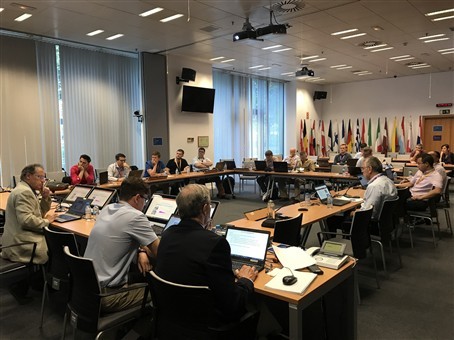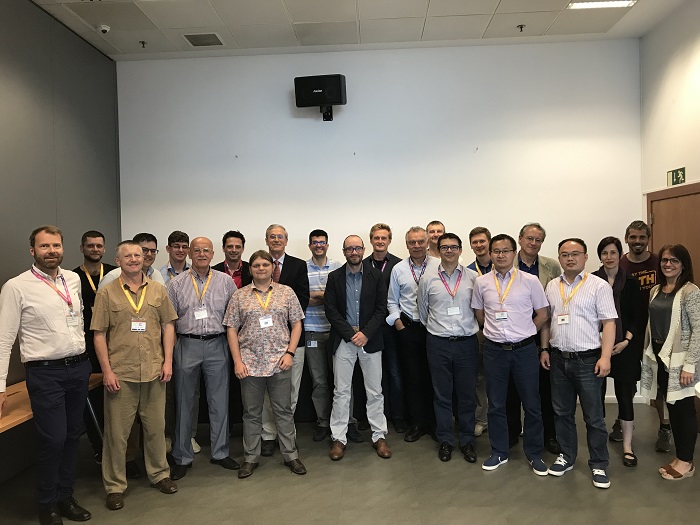Europe, Russia, China, Korea and ITER Organization discuss the progress of Blanket components

Engineers from Europe, Russia, China, Korea and ITER Organization exchange views on the progress of Blanket components, Barcelona, June 2019
Every quarter, under the guidance of ITER Organization, the technical teams of Europe, Russia, China and Korea meet to discuss the progress of the Blanket components which they have to deliver as part of the biggest fusion machine. The meeting site is on a rotating basis and attendees have the capacity to join either in person or remotely. This time F4E offered to host the event in Barcelona bringing together 51 participants from different countries. Such meetings help towards building a one-team spirit, promote useful exchanges between members and encourage them to act in an integrated manner.
Four ITER parties are involved in the production of the 440 modules, consisting of the first wall panels and shield blocks, which will form the blanket. Europe is responsible for the production of 215 first wall panels. Their mission is to cover the inner walls of the vacuum vessel, and the out-of-vessel components, so as to protect them from the heat and radiation produced by the fusion reactions. F4E is also responsible for the cooling manifold, consisting of a vast network of pipes behind the blanket through which water will circulate to cool down the equipment from the extremely high temperatures.

As the components are entering some of the most interesting phases in the lifecycle of prototyping, and in the case of the shield blocks the series production has kicked off, there is plenty to learn from manufacturing, factory acceptance tests and other activities linked to production. The ITER Domestic Agencies attending the meeting gave presentations on the current state of play, the progress in the preparation of the series manufacturing of the first wall panels and offered some first projections about schedule. In the case of Europe, two out of the three full-scale prototypes have already been completed by different industrial entities giving F4E representatives the possibility to debrief their counterparts extensively. The meeting lasted two days and was considered extremely fruitful due to the useful exchange of know-how between parties. “It’s through meetings like this that we have the opportunity to exchange views on several topics linked to production and gradually develop a manufacturing culture across the board,” explains Patrick Lorenzetto, F4E In-Vessel Project Manager.